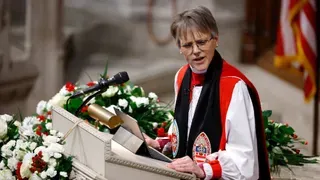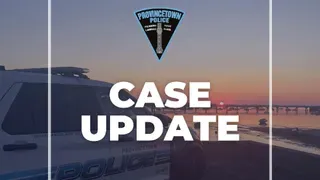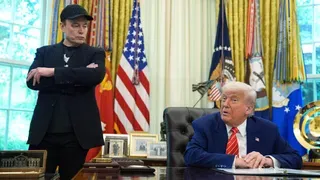November 8, 2007
Anger after MassEquality board vote
Michael Wood READ TIME: 6 MIN.
Just days after the MassEquality board of directors voted to expand the grassroots organization's mission and create a fully independent board of directors, some people with knowledge of the proceedings are charging that the process that led to those changes was deeply flawed. They allege that the board's three-month strategic planning process was unbalanced, that there was little to no opportunity for debate prior to the Nov. 3 board vote, and that the vote to expand MassEquality's mission actually fell short of the two-thirds majority it required to pass.
"The process was skewed from the get-go, regrettably," said board member and former board treasurer Scott Squillace in an interview this week.
The process Squillace referred to was the three-pronged exploration of what the LGBT community wanted from MassEquality. In September, the MassEquality Board of Directors hired Jack Regan of Metis Consulting to help the board figure out the organization's next steps given that the defeat of an anti-gay marriage constitutional amendment during the June 14 constitutional convention has secured marriage equality in the Commonwealth for the foreseeable future. Regan helped the organization set up an online survey asking 10 questions about what MassEquality should do next. Options ranged from disband to work on marriage equality outside the state to working with other local LGBT groups on issues unrelated to marriage. He also organized a "World Caf?" held at the John Hancock Hotel and Conference Center Oct. 15 that saw 100 of the state's LGBT leaders meet to discuss the future of MassEquality. Regan also interviewed 12 MassEquality "stakeholders" consisting of five major donors to the organization and seven LGBT leaders.
In particular, Squillace charged that the donors interviewed by Regan were cherry picked by MassEquality Development Director Scott Gortikov, who gave Regan the names of people who would agree to continue funding MassEquality if it expanded its mission. Squillace conceded that not every major donor to the organization could be interviewed. But Gortikov's choices, Squillace said, were suspect. "He earns his livelihood at that institution," Squillace said of Gortikov. Gortikov could not be reached for comment.
The data from the interviews was presented to the board during an Oct. 24 meeting as if there was "overwhelming support" among donors for expanding MassEquality's mission, Squillace said. "The people who aren't willing to fund this stuff" weren't interviewed.
Squillace also said that the online survey was not representative of the LGBT public at large. The survey found that 75 percent of respondents agreed that MassEquality should work to "secure marriage in other states" and 67 percent said that they agreed that MassEquality should work on "other issues" in the Bay State. Meanwhile, 84 percent of respondents disagreed with the statement that there was "no need for MassEquality to continue." Squillace said that the survey, by its very design, attracted the "type of people who would bother filling out a survey" and therefore was skewed toward a more activist base of respondents.
Board member and former board chair Ellen Zucker also raised concerns about the process. Zucker, who strongly opposed doing away with MassEquality's coalition governance, said that what she had heard throughout the process from MassEquality supporters was how much they appreciated that the coalition organizations worked together. "Unfortunately, that's not what happened at the end of this process and it's not the result of the process," she said.
A representative of one of the founding organizations of the MassEquality coalition, which effectively disbanded when the board voted in favor of appointing an independent board Nov. 3, agreed with Squillace's and Zucker's observations about the process. "There was never an option to keep it as a coalition put on the table," said the representative, who spoke on condition of anonymity. By linking all of the options for MassEquality's future together, added the representative, "there was no option but to vote for complete dissolution or for everything. ... I have some reservations about the fact that board members didn't have an option of actually giving their guidance as to what the mandate of the organization should be going forward."
On Nov. 3, the board voted on two motions made by two different members at the meeting. The first was to expand MassEquality's mission to encompass the protection of marriage rights in Massachusetts, working to achieve marriage equality in other states and working to assist local LGBT organizations advance their respective agendas. The second motion was to create an independent board of directors. Currently, 12 of the 18 seats on the board are nominated by members of the MassEquality coalition.
Some who were close to the proceedings expressed concern about the lack of debate on the issues during the Nov. 3 board meeting, which was held at a retreat center on the campus of Babson College. According to Squillace and another source who confirmed Squillace's account but declined to speak for attribution, the meeting began with a morning session that included a Power Point presentation by Campaign Director Marc Solomon. Solomon laid out his vision for MassEquality. There was also a lengthy examination by board members of budget proposals for several of the options being mulled for MassEquality's future; they outlined potential funding and expenditures for MassEquality over the next two years. The board broke for lunch at around 12:30 p.m. About 45 minutes later the board gathered again and briefly resumed discussion of financial matters. After that, the official board meeting was called to order and after approximately 10 to 15 minutes of debate, a motion was made to stop the discussion and move to the substantive votes on MassEquality's future.
"It was fundamentally disrespectful," said Squillace of the way in which the meeting unfolded.
There is dispute among multiple sources who attended the board meeting or who were close to the process and familiar with its outcome about what the vote count was on the question to expand MassEquality's mission. Three sources say that the motion passed by a 12-5 vote with Zucker, Squillace, former Board Chair Elyse Cherry, Massachusetts Gay and Lesbian Political Caucus Co-Chair Arline Isaacson and Joan Ruttenberg voting against the motion. But two other sources say that the motion only garnered support from 11 board members. In order to pass, some sources said the motion required two-thirds support of the 18-member board; Board Chair David Wilson told Bay Windows the motion only required majority support to pass. (Only 17 board members were present for the meeting; board member Barbara Grossman was out of state attending her son's wedding.) Multiple sources confirmed that the second question about whether to make the board independent of the MassEquality coalition partners say that the question passed by a 14-3 vote with Zucker, Cherry and Isaacson voting against it.
Wilson said that the meeting began at 1 p.m. and lasted for two-and-a-half-hours during which there was "plenty of time in there for discussion." Wilson also pointed out that the meeting was preceded by three months of discussion about the various options for MassEquality, in addition to the large amounts of data provided to them during the strategic planning process. "At some point you have to call for a vote," said Wilson. "If Saturday was our only meeting I guess I would agree with [them]."
Wilson said that a two-thirds vote is required to change the group's bylaws while a majority vote was required to change MassEquality's mission statement. Either way, Wilson said, the board achieved a majority vote with two-thirds of its members supporting both votes. A change in MassEquality's bylaws, Wilson said, must be filed with the Secretary of State's office, and that vote has not yet taken place since the bylaws are currently being rewritten by a board committee to reflect the expanded mission. The change in the bylaws will be completed within the next 30 days and sent to the full board for ratification, said Wilson.
"I am aware that there are certain board members that are going to continue to make this a contentious issue but we are definitely moving forward with a solid majority vote towards ratification of bylaws," Wilson added. "So any other noise in the system I'm just not paying attention to."
Squillace suggested that the way the vote was conducted may harm the LGBT movement in Massachusetts in the short run, as some people who had dedicated their time and money to the organization may feel alienated by the process.
Squillace said he does not completely disagree with the board's decision to expand MassEquality's mission or move to a new board composition that is independent of its coalition partners. He said he wished the changes had come about through "a slightly more tempered process," that enabled everyone to "put their views out there and actually try to negotiate a compromise." If he had had his way, said Squillace, "I would have liked to have seen exactly what happened," only with a phased in time-table for the expanded mission to ensure that the necessary fundraising goals could be met. "Frankly I'm still worried about the November 08 elections and making sure we're not declaring victory too soon," said Squillace. "So I wouldn't have broadened everything until after that, I think."
Michael Wood is a contributor and Editorial Assistant for EDGE Publications.







